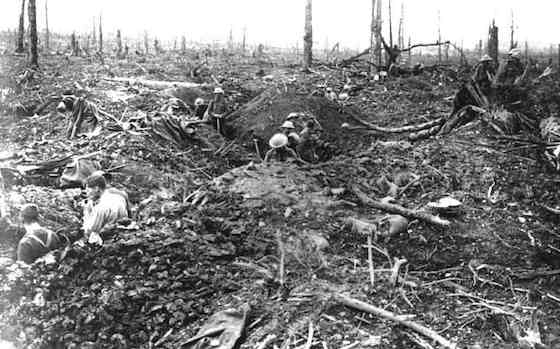- MENU
- HOME
- SEARCH
- WORLD
- MAIN
- AFRICA
- ASIA
- BALKANS
- EUROPE
- LATIN AMERICA
- MIDDLE EAST
- United Kingdom
- United States
- Argentina
- Australia
- Austria
- Benelux
- Brazil
- Canada
- China
- France
- Germany
- Greece
- Hungary
- India
- Indonesia
- Ireland
- Israel
- Italy
- Japan
- Korea
- Mexico
- New Zealand
- Pakistan
- Philippines
- Poland
- Russia
- South Africa
- Spain
- Taiwan
- Turkey
- USA
- BUSINESS
- WEALTH
- STOCKS
- TECH
- HEALTH
- LIFESTYLE
- ENTERTAINMENT
- SPORTS
- RSS
- iHaveNet.com: Africa Current Events
by Albert Grundlingh

The First World War broke out barely four years after the
These divisions bedevilled South Africa's participation in the war, as is evident from the outbreak of a Boer rebellion in 1914, in part as a protest against South Africa's involvement. At the same time armed black participation was in dispute and, as a compromise, black soldiers were only allowed to go France as non-combatants doing manual work in the harbours and forests. White soldiers fought in what was South West Africa -- a German colony until 1915, now Namibia -- in parts of East Africa and in the European trenches, distinguishing themselves particularly at Delville Wood, in France.
The fault lines of 1914 continued to plague South Africa for much of the 20th century. English speakers tried to keep the memory of Delville Wood alive; Afrikaners used the rebellion of 1914 to galvanize nationalist sentiments, and among black people it was the sinking of the troopship Mendi on February 21, 1917 off the Isle of Wight with the loss 615 men that boosted a sense of historical consciousness and gave rise to annual Mendi memorial days commemorating the event.
With the end of white rule in the country, the history of the Mendi was discovered anew and the Order of Mendi was instituted as one of the highest awards for bravery. Linking the Mendi with bravery was mainly based on a long-standing tradition that some black non-combatants performed a death dance on the deck of the sinking ship and sang a song proclaiming African unity.
There are good reasons to believe that this event was apocryphal but what is probably of greater importance in the long run is that the story of the Mendi had gained traction over years. And under a black government it is likely to be in the foreground during the coming centenary commemorations.
WORLD | AFRICA | ASIA | EUROPE | LATIN AMERICA | MIDDLE EAST | UNITED STATES | ECONOMICS | EDUCATION | ENVIRONMENT | FOREIGN POLICY | POLITICS
- How to Reverse Nigeria's Oil Curse
- Africa: The Soldier and the Street
- Africa: Exploiting Minerals, Exploiting Communities
- Nigeria's Critical Juncture: Boko Haram, Buhari, and the Future of the Fourth Republic
- Congo: Is Democratic Change Possible?
- Nigeria's Youth Factor
- What Now for Burundi? Five Key Risks
- Kenya's Sorrow and How the U.S. Fueled Al-Shabab in Somalia
- Kenya's Garissa Attack Wasn't Just a Tragedy
- Chad: A Precarious Counterterrorism Partner
- Western Sahara Since the Arab Spring: Any Hope for Change?
- Sexual Terror and Impunity in Somalia
- South Africa Resists Nuclear Oversight
- Nigerian Women in the Crosshairs
- Four Years After Gaddafi, Libya Is a Failed State
- Tragedy in Tunisia: Targeting Cultural Heritage
- Tragedy in Tunisia: Perfect Storm of Islamist Extremist Indoctrination and Lax Security
- Authoritarian Symps
- Learning the Lessons of Ebola
- Healing or Harming? The Provision of Health Care by Peacekeepers
- Nigeria: Rebuilding After Boko Haram
Article: Copyright © Tribune Content Agency
South Africa and World War I - Current Events in Africa